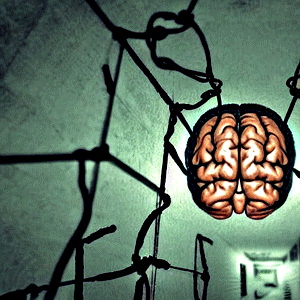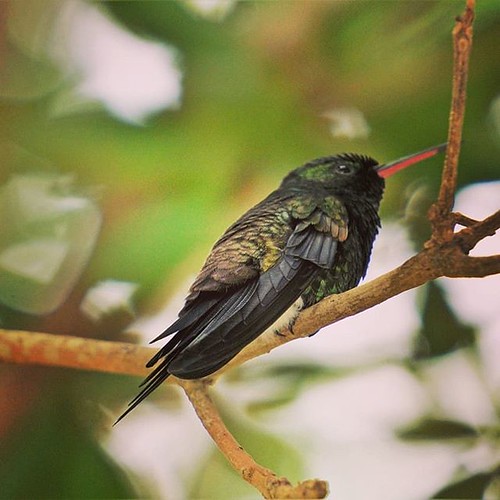I had some dalliances with the outside world, some with interesting people, but mostly not. The community I live in is remarkably ignorant and petty. Someone dropped an egg on the stairs and the janitors had not gotten to it, so that was a point of discussion. A security guard had laid on a couch was another, which became a matter of pettiness as well – the guard was unwell, it ended up. The ‘rain flies’ of Trinidad became a topic or so I thought – it ended up that the recent deluge of rain flies (termites) was accompanied by actual flying ants – alates – that befuddled the denizens of this strange community.
Recently, in a group chat, someone posted a video of an extraction fan in a bathroom and said they thought they had animals in their ceiling. Upon listening, it was clear that there birds involved, and being a curious person I had long found that the extraction fans connected to open air rooms where the split AC units vented their heat to the world. Like most chats, I was late to it and a day’s worth of speculation had already gone into it with only one person out of maybe 10 involved actually getting it right: birds. I don’t know how people couldn’t identify it, and the original poster retorted to me that she didn’t have time to watch the discovery channel.
I live on a planet where being able to identify the sound of birds was being shamed. Discovery Channel? Most of this can be found by simply walking outside and observing. Listening. Watching. Noticing. Finding the right questions, and thanks to the advent of a communications network filled with information, finding the right answers to questions. It used to be much more laborious with encyclopedias and the Dewey Decimal System alone. How can you not know the sounds of a bird in Trinidad and Tobago? What sort of life has one lead for not knowing the sound of birds to be defensible?
I sat drinking beer with a friend a few evenings ago, and said as much. He, too, has a curious mind, and like me, his advice is often ignored by people not as far away from brandishing pitchforks and torches over small and petty things while larger issues loom. We commiserated, laughed, and went about our lives after a few beers, but it bothers us both not that people don’t know as much as people don’t seem to want to know. What if I told you the person with animals in the ceiling was a musician? How does a musician not know the sound of birds?
Are we so removed from our world, staring at the flat screens in our caves that we shout complaints at these same screens about things we should know? How is not knowing the sounds of birds defensible? What sort of life does one have where one doesn’t hear the birds around on a daily basis? What sort of silence is in that cave?
Is it a cave, or a tomb with wifi?
Is it that the red dots of life have replaced the sounds of the outside world?
Like every morning, I sat with my first cup of coffee listening to the birds – the orange winged parrots and their revelry of cacophony, while every now and then the sounds of various tanagers and the croaking of the orependola rings through. The ever present Great Kiskedee chimes in now and then to a natural symphony of sunrise every morning. Not all would know the different instruments involved or name them, but certainly we should be able to hear them and know that they are birds. Rodents are not known for their voices. Birds are. One doesn’t need to be a naturalist to appreciate the songs of the morning.
It seems we absorb more and more silence around these flat screens that we expect that as nature when it is not, but I know it is not silence. I hear the fans of my computers, the whine of electrical devices all too well, and in time I tune it out but it also takes a toll on me where I need to hear the other lack of silence. That there are people who are different does not surprise me, and still I wonder after over half a century why people don’t know more about their world when the information is so readily available.
My knowledge of birds came from observation and answering questions that came to mind. My knowledge of insects was the same way, with trying to understand which insects were beneficial or not to households and plants pushed me on minor quests to get more knowledge, and I do not claim great knowledge of these things, yet the ignorance of others about these things has become as palpable as the shroud of silence they seemingly snuggle in. What sort of life is there without curiosity and only complaint?
We are the noisy ones on the planet, mostly, and we are deaf to our own noise. We are deaf to the sounds around us, it seems, and we are blind to the world around us as well if it is something inconvenient.
It seems despite my best efforts, I am surrounded by the deaf and blind, who lash out at the smallest inconveniences, and who will complain as if it’s their problem while acting as if it isn’t.
We do not live in silence. We live increasingly in ignorance, it seems. The troubles half a world away, where people die because other people choose to kill them, are likely filled with people who appreciate the songs of birds as a welcome interruption to the sounds of the weapons of their enemies.
What luxury we live in to not know the sound of birds. What depravity.
AI should replace some of these people, for that is all they have become – large language models with no questions and hallucinated answers.






